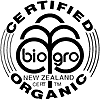Press release
IFOAM EU highlighted role of organic farming in EU Informal Rural Development Directors' meeting
Climate change and water scarcity are pressing challenges that require rural development programmes to invest in sustainability
Limassol, Cyprus, 27 September 2012
An IFOAM EU (1) delegation was invited today to speak at the informal meeting of rural development directors (2) in Limassol to present the results of the "Organic Days" (3) - the high level expert conference which took place from 24-26 September in Larnaca, Cyprus.
Addressing the delegations of Rural Development Directors from the 27 Member States and the European Commission, Christopher Stopes, President of the IFOAM EU Group, presented the key conclusions from the Organic Days:
Innovation in organic food and farming is not only essential to safeguard the competitiveness of the organic sector, but will also drive the whole agricultural sector towards more sustainability.
Research and innovation needs to involve all actors in the food chain as it relies on broad expertise. The European Innovation Partnership (EIP) "Agricultural Productivity and Sustainability" must ensure a participatory approach to foster knowledge exchange, to use the innovation potential of farmers and to enhance sustainability in the food chain.
A paradigm shift is needed. We have to move away from focusing purely on technical innovation and on productivity towards ‘sufficiency’ and a broader understanding of innovation.
Mediterranean rural areas are already highly affected by the consequences of climate change, with increasing water scarcity and droughts. Organic farming provides great potential for climate change mitigation and adaptation as it increases carbon sequestration and improves water retention capacity in soils.
The Common Agricultural Policy (CAP) needs a substantial reform if it is to help our food chain become fit for future challenges (4). Only significant greening and the recognition of organic farming in the first pillar, in combination with a financially stronger second pillar, can provide the basis for moving farming towards sustainability. The rural development fund must set the guidelines for further progress by linking 50% of funding to sustainability and by fostering a coherent framework for organic farming: support for conversion and maintenance, and for making organic a priority under measures such as marketing, investments, cooperation, advisory services and diversification.
The three-day “Organic Days” conference, organised by the IFOAM EU Group in cooperation with the European Commission, the Cyprus EU Council Presidency, TP Organics and Pasybio (5), gathered around 100 participants from the European institutions, the research community and the organic food and farming movement.
More information:IFOAM EU Group, phone + 32-2-280 12 23, Fax: +32-2-735 73 81, info@ifoam-eu.org, www.ifoam-eu.org
Notes
The IFOAM EU Group is the European working level within the International Federation of Organic Agriculture Movements. It brings together more than 250 organisations, associations and enterprises from all EU-27, EFTA and candidate countries. IFOAM´s goal is the worldwide adoption of ecologically, socially and economically sound systems that are based on the principles of Organic Agriculture.
Informal Rural Development Directors meeting, 27.09.2012 - 28.09.2012: http://www.cy2012.eu/index.php/en/political-calendar/areas/agriculture-and-fisheries/informal-rural-development-directors-meeting
Organic days in Cyprus, 24-26 September 2012, please find further information and the Congress programme and the proceedings at http://organicdays.eu/.The position of the IFOAM EU Group on the CAP 2014-2020 and further information can be found on the IFOAM EU Group CAP website: www.ifoam-eu.org/workareas/policy/php/CAP.php; the need for coherent policy frameworks to support organic farming has been identified by the study “Use and efficiency of public support measures addressing organic farming” by Jürn Sanders, Matthias Stolze and Susanne Padel (2012): http://ec.europa.eu/agriculture/external-studies/2012/organic-farming-support/exec_sum_en.pdf
Pasybio - Pancyprian Association of Organic Farmers in Cyprus
















